Alice Wheeldon: Bid to clear trio convicted of PM plot fails
- Published
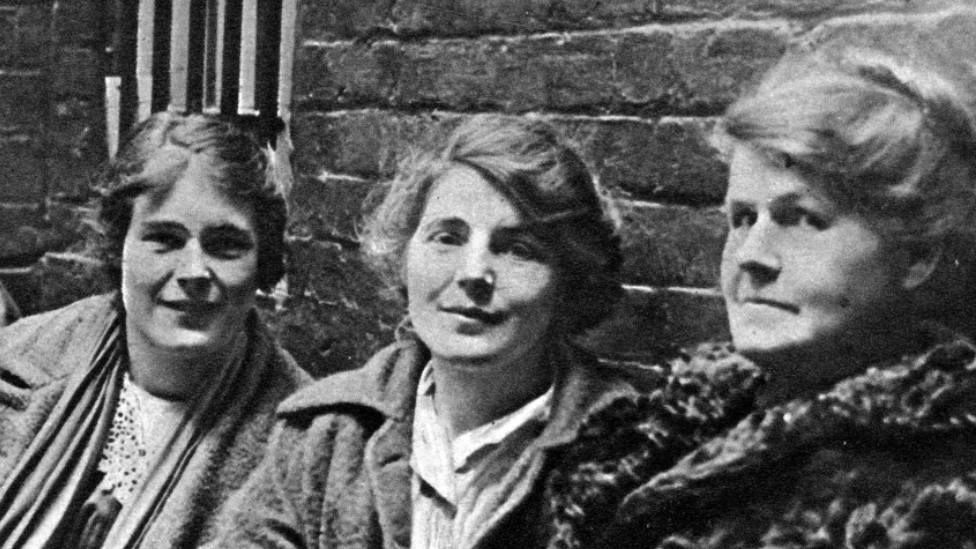
Alice Wheeldon (right) and daughter Winnie Mason (centre) were convicted while Hettie Wheeldon was cleared
A bid to officially clear the name of three people convicted of trying to kill a prime minister has failed.
Alice Wheeldon, her daughter and son-in-law were convicted in 1917 of a conspiracy to kill David Lloyd George as she opposed World War One.
Surviving relatives had led a campaign to have the case reopened.
The Criminal Cases Review Commission (CCRC) has now said while their arguments had merit, the case was too old to justify the expense.
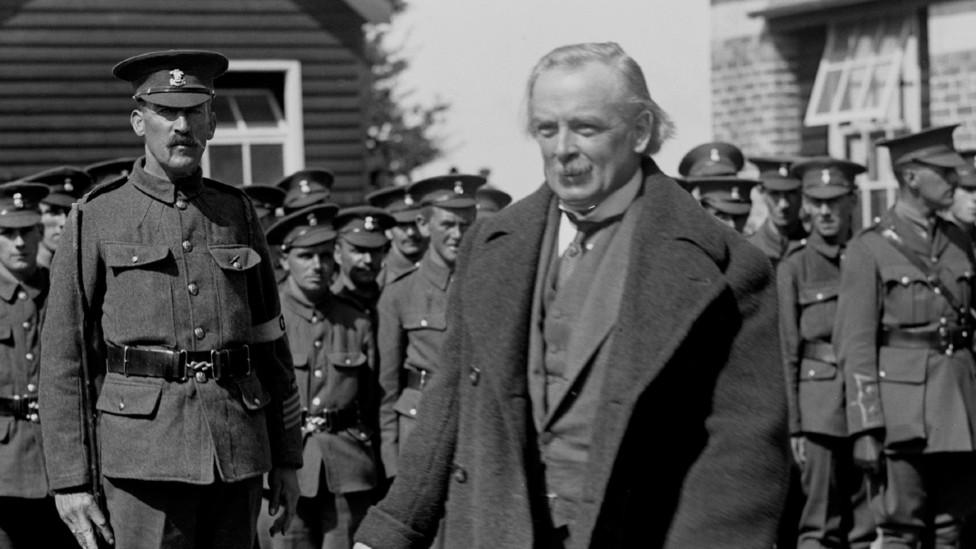
David Lloyd George became prime minister in 1916 and was a supporter of conscription
Alice Wheeldon and her daughters were well-known pacifists and suffragettes.
A man called Alex Gordon pretended to sympathise with them, but he was an MI5 spy who claimed they were plotting to kill the prime minister with a poisoned dart.
Mrs Wheeldon, her daughter Winnie Mason and son-in-law Alfred Mason were convicted and jailed but Alice was released soon after due to ill health.
Mr and Mrs Mason were released in January 1919 after serving almost two years.
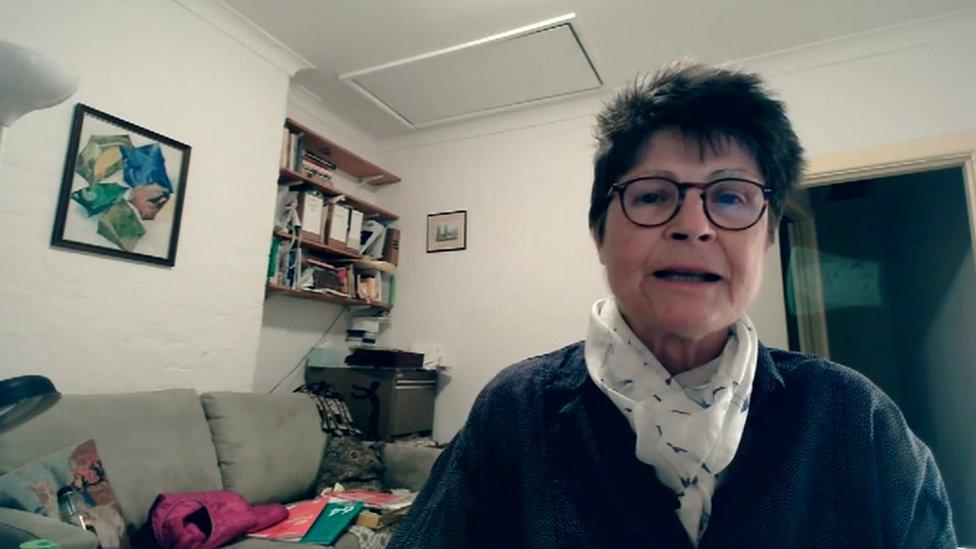
Chloe Mason said the campaign had brought a lot of attention to the case
Ever since, the family has criticised the use of an undercover agent and the handling of the trial.
In 2019 Wheeldon's great-granddaughter Chloe Mason, who lives in Australia, came to England to deliver a dossier to the CCRC.
It contained more than 170 pages of evidence made up of discoveries by historians and a tranche of documents released over the years under the Public Records Act.
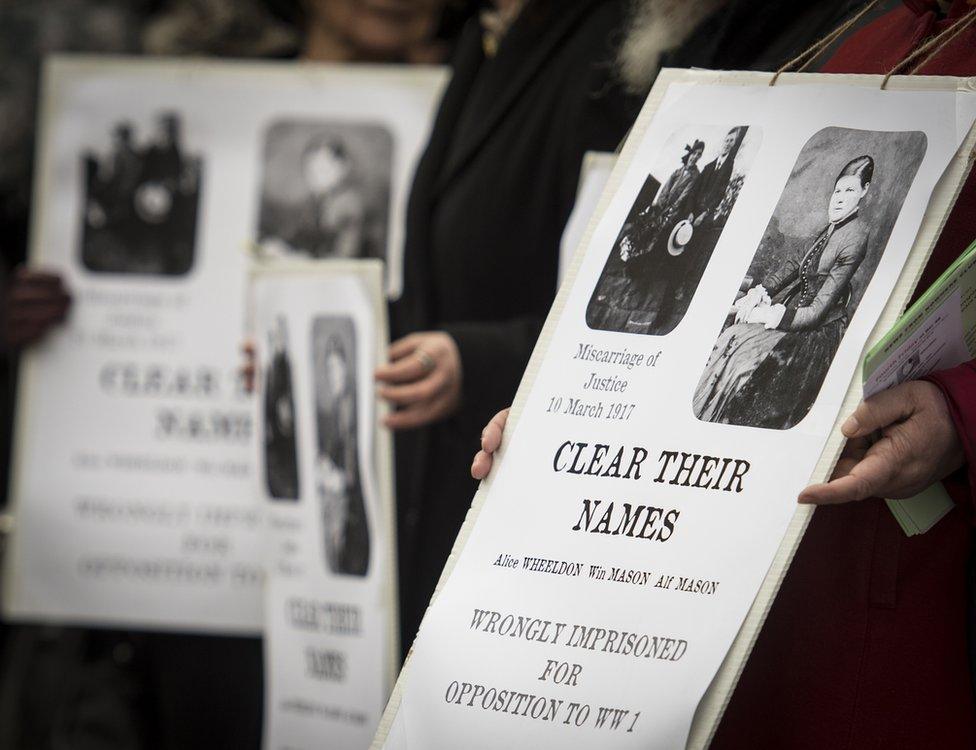
The CCRC acknowledged the impact of the case on the families
In its decision, the CCRC said: "The submissions identified in the application may raise a real possibility that these convictions would be overturned."
"In considering whether to refer a case, the CCRC must take into account a number of points including if it is in the public interest to refer.
"This includes if lessons can be learned from a referral, the cost to the public purse of referring and the current demands on the criminal justice system.
"The CCRC's decision not to refer the cases of Alice Wheeldon, Alfred and Winnie Mason has taken these points into consideration," it added.
Ms Mason said: "We always knew we were aiming high.
"The commission of course, understandably, give priority to people who are currently serving sentences in custody.
"This is as good as it gets, it can't get any further but people can see the material, so this is very satisfying."

Follow BBC East Midlands on Facebook, external, Twitter, external, or Instagram, external. Send your story ideas to eastmidsnews@bbc.co.uk, external.
Related topics
- Published20 November 2019
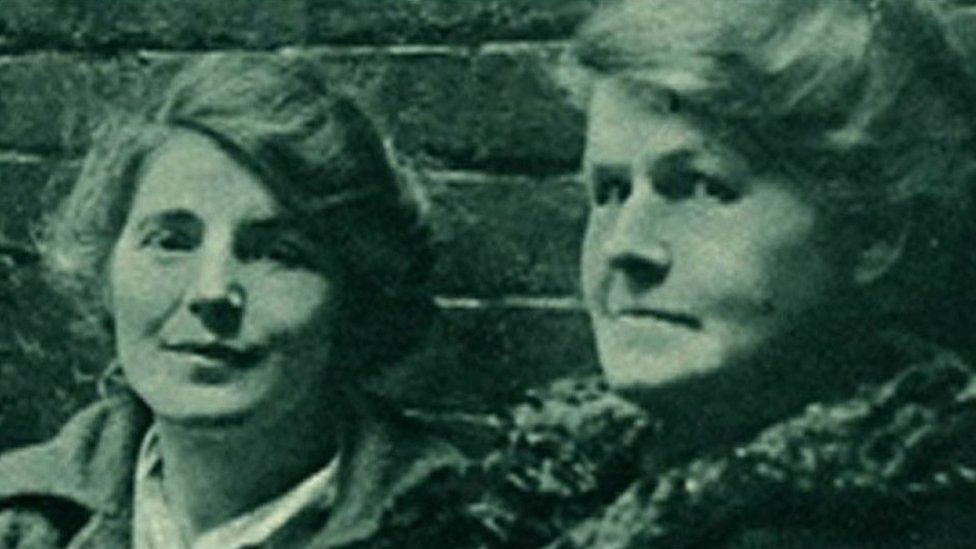
- Published11 March 2017
